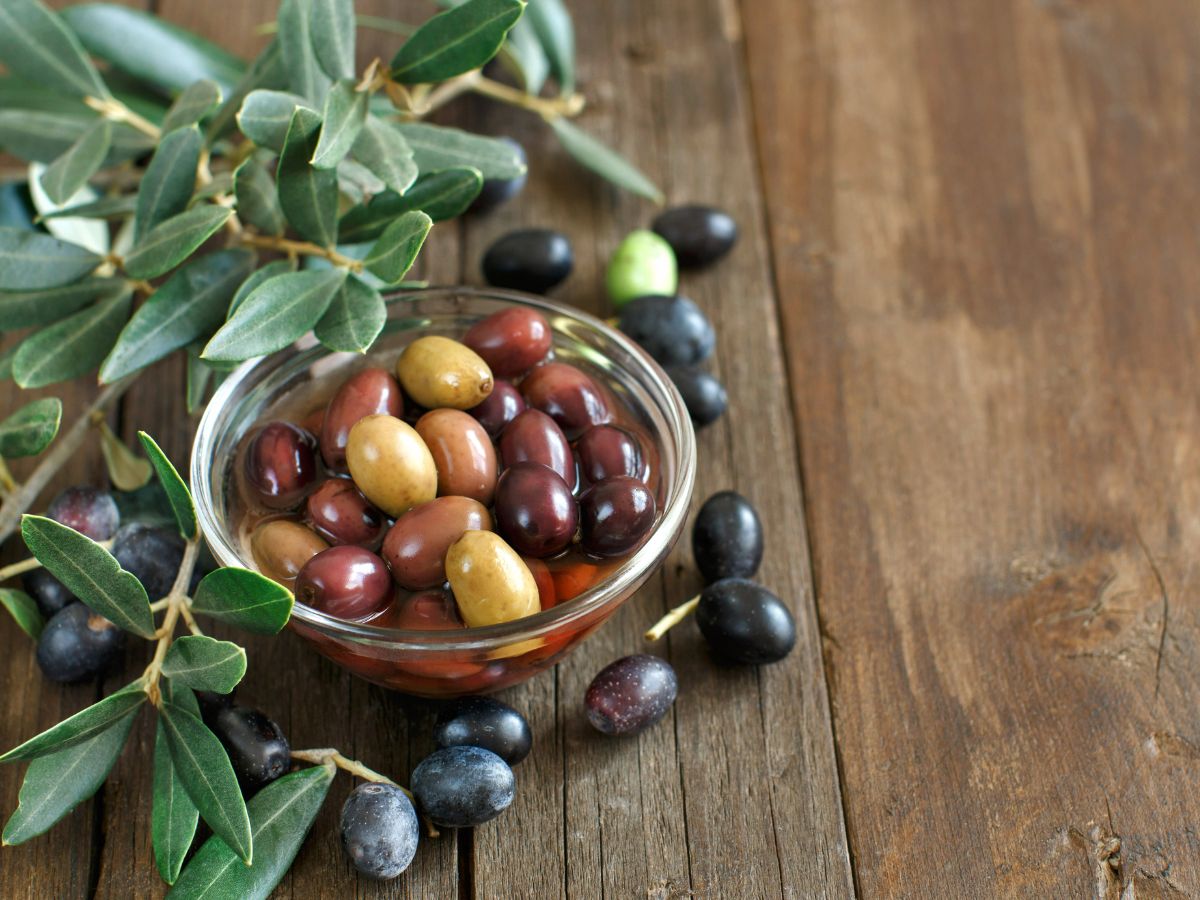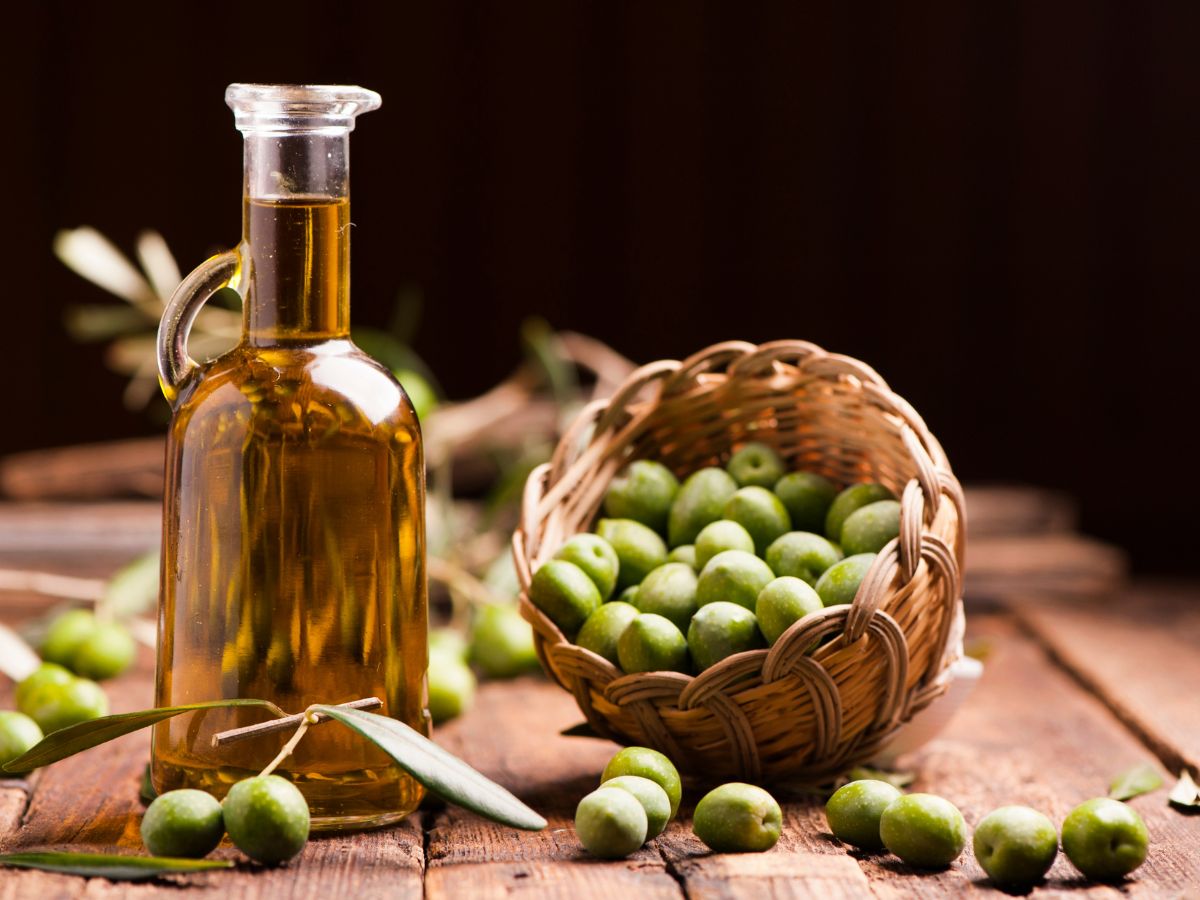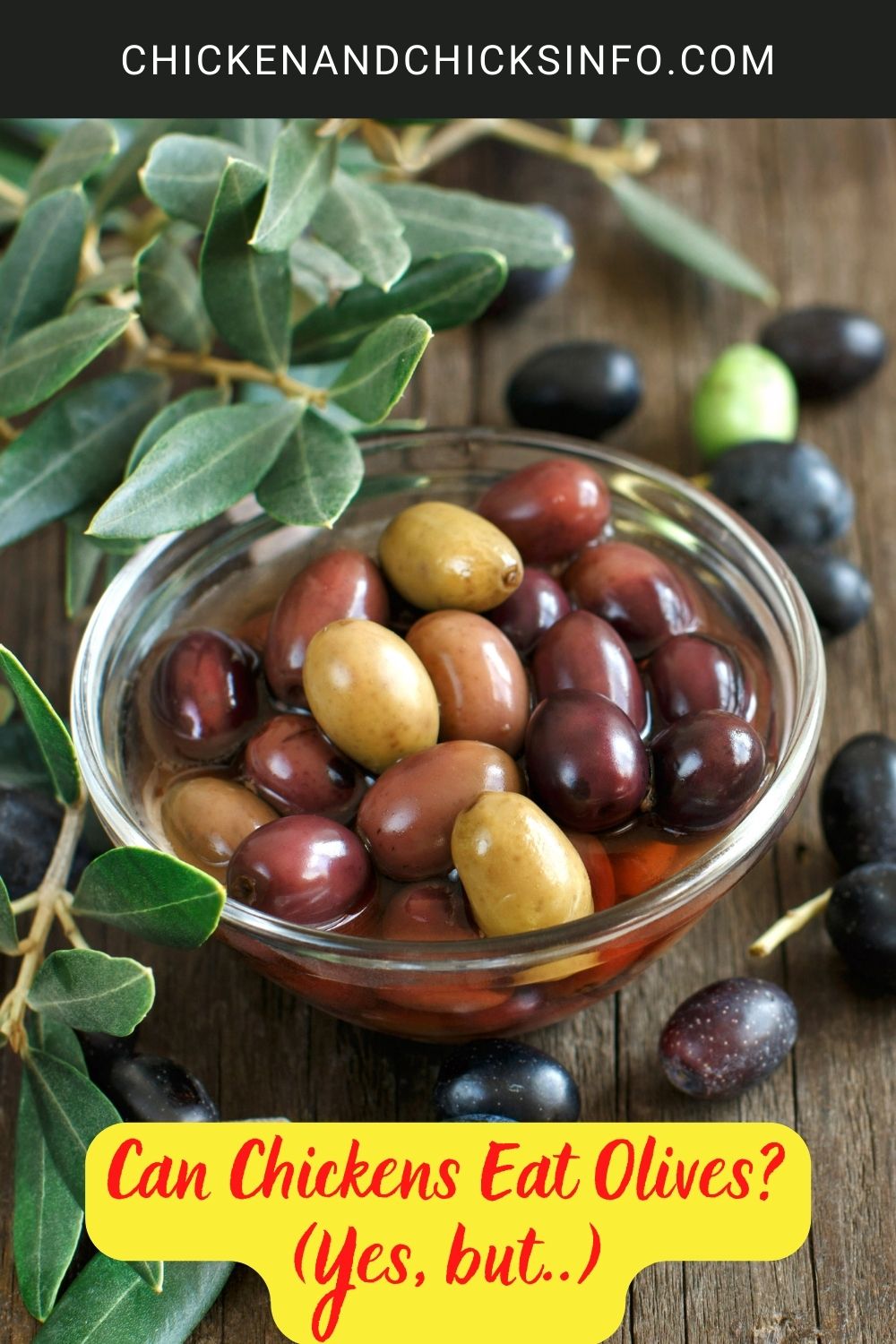
Chickens can eat olives, yes. Olives provide some good nutritional benefits for chickens. Uncured olives are better as they’ve not been cured in brine, salt, or any other preservatives.
Jump to:
Will Chickens Eat the Olive Pits?
I know backyard chicken keepers that give their birds olives with the stones in and they tell me they never eat the stones and it’s not an issue.
Personally, I remove the stones. It’s quick and easy to do, so it saves me cleaning them up later off the floor or potentially causing my chicks an issue.
Does the Color of the Olive Make a Difference?
To us, the color of an olive changes the taste and we might have a preference.
To chickens, there is no difference. The nutritional content is the same, regardless of the color. Chooks can’t tell the difference in the taste anyway, so it makes no difference to them.
The difference between a green and a black olive corresponds to how ripe the olive was when it was picked, as well as how long the curing process was.
Olives picked before they are fully ripe are green, it’s the black olives that are ripe. Even though the green ones are a lot more popular.
Are Olives Healthy for Chickens?

I’m sure you’re well aware that olives are healthy for us. Olives and olive oil have a lot of good nutritional content, most of which translate into health benefits.
Most notable, they are rich in vitamin E, iron, copper and calcium .
According to Poultry World, vitamin E plays an important role in a chicken’s growth and reproduction. It also helps maintain their structural tissue integrity and supports their nervous system while strengthening their disease resistance (source).
Quite the list of benefits. They’ll get a healthy dose of vitamin E in their formulated feed, but there’s no beating the real thing from fresh fruits.
It’s well-known that chickens, especially laying chickens, need a healthy amount of calcium in their diet to make eggshells. So the calcium content in olives is also most welcome.
The other nutritional content, such as antioxidants and various minerals and vitamins helps to round out a chicken’s nutritional needs too.
So, pre-cured olives with no salts or other additives make for a nice healthy treat for chicks.
Feed Them Pre-Cured Olives If You Can
You might not know this is you’ve only ever bought olives from a store and not picked them yourself. But olives are actually very bitter tasting when harvested because they contain a compound called oleuropein.
To give them the “olive taste” we all know and love, regardless of seasoning, they are put through a curing process.
This typically involves using water, dry salt, lye, or brine. During the curing process, the compound oleuropein is drawn out of the olive flesh.
This changes olives from their original bitter, unpalatable taste, to the rich nutty taste we (most of us) love.
Luckily, chickens don’t care about the bitter taste as we do. They have a lot fewer taste buds than us, and I know for a fact they are happy eating olives as they are.
Plus it’s way better for them this way anyway.
How to Feed Olives to Your Chickens

So, I’ve read accounts from some backyard chicken owners who are happy to throw olives to their birds as they come.
They come back later and find the olives have been eaten and the pits are laying around on the floor. This makes sense, chickens are pretty clever and generally know what they can and can’t eat.
Personally, I slice the olives and remove the pits then throw the halves in for my chickens. It makes it a little easier for them, reduces any risk of them eating the pits (I have a couple of silly hens), and means less cleaning up for me.
Things to Be Aware of When Feeding Your Chickens Treats / Table Scraps
Chickens love most table scraps, fruits, and vegetables. Basically, most of the foods we eat are fine for them with a few exceptions I’ll cover below.
It’s a lot of fun sharing different foods with chickens to see what they like and don’t like. The key thing to remember, however, is that “treat” foods like table scraps shouldn’t make up more than 10% of a chicken’s diet.
The bulk of a chickens diet should be pelleted poultry food. It’s specially formulated to make sure they’re getting all the good nutrition they need. Adult chickens will eat around 120 grams a day.
Some foods to avoid giving to your chickens are they are harmful/toxic:
- Garlic and onions
- Greasy and processed foods
- Sweet, sugary treats and candy
- Avocado pits and skins
- Coffee and coffee grounds
- Green tomatoes and potatoes
- Salty or highly seasoned foods
- Dry beans
- Chocolate
- Any spoiled or moldy foods
This isn’t an exhaustive list, but it covers most of the common foods that should never be fed to chickens.
Related content - Here are some reasons why you should feed your chickens radishes and herbs.
In Summary - Can Chickens Eat Olives?
Of all the fruits and foods we eat that we can share with chickens, olives are one of the better ones.
There is a lot of good nutrition in olives that help support a chicken’s healthy immune system and development.
If you can share some as an occasional treat, I recommend it - and your chickens will thank you for it.





